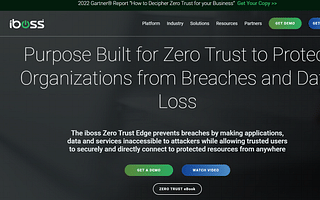Maya Braun is a seasoned expert in the realm of cryptography, driven by a profound interest in data privacy. Her professional journey has been dedicated to the design and development of secure communication systems, while also being a vocal advocate for digital rights. Maya takes pleasure in penning down her thoughts on the latest breakthroughs in cryptography and their potential impacts on privacy.
Securing your website against cyber attacks is of utmost importance in today's digital world. As a cybersecurity expert, I understand the significance of protecting your online presence from malicious actors. Here are some best practices to ensure the security of your website:
1. Keep software up to date: Regularly update your website's software, including the content management system (CMS), plugins, themes, and any other third-party applications. Outdated software can contain vulnerabilities that hackers can exploit.
2. Use strong and unique passwords: Implement a password policy that requires strong passwords for all user accounts. Encourage the use of complex passwords that include a combination of uppercase and lowercase letters, numbers, and special characters. Additionally, ensure that each user has a unique password to minimize the impact of a potential breach.
3. Enable two-factor authentication (2FA): Implementing 2FA adds an extra layer of security by requiring users to provide a second form of verification, such as a temporary code sent to their mobile device, in addition to their password. This significantly reduces the risk of unauthorized access to your website.
4. Regularly backup your website: Regularly backup your website's files and databases to an offsite location. In the event of a cyber attack or data loss, having recent backups will allow you to restore your website to a previous state.
5. Implement a web application firewall (WAF): A WAF acts as a barrier between your website and potential attackers. It filters out malicious traffic, such as SQL injections and cross-site scripting (XSS) attacks, before it reaches your website.
6. Use SSL/TLS encryption: Secure Socket Layer (SSL) or Transport Layer Security (TLS) encryption ensures that data transmitted between your website and its visitors is encrypted and cannot be intercepted by unauthorized parties. Implementing SSL/TLS is particularly important for websites that handle sensitive information, such as login credentials or payment details.
7. Regularly scan for vulnerabilities: Conduct regular vulnerability scans and penetration tests to identify any weaknesses in your website's security. These tests simulate real-world attacks and help you identify and address potential vulnerabilities before they are exploited by hackers.
8. Train your staff: Educate your employees about cybersecurity best practices, such as identifying phishing emails, using secure passwords, and recognizing suspicious activities. Human error is often a weak link in cybersecurity, so training your staff can significantly reduce the risk of a successful cyber attack.
9. Monitor your website: Implement a monitoring system that alerts you to any suspicious activities or unauthorized access attempts. Regularly review your website's logs and monitor for any unusual patterns or behaviors.
10. Stay informed: Keep yourself updated with the latest cybersecurity news and trends. Follow reputable sources, such as HackerDesk, to stay informed about emerging threats and security updates relevant to your website.
By following these best practices, you can significantly enhance the security of your website and protect it from cyber attacks. Remember, cybersecurity is an ongoing process, so it's important to regularly review and update your security measures to stay one step ahead of potential threats.















